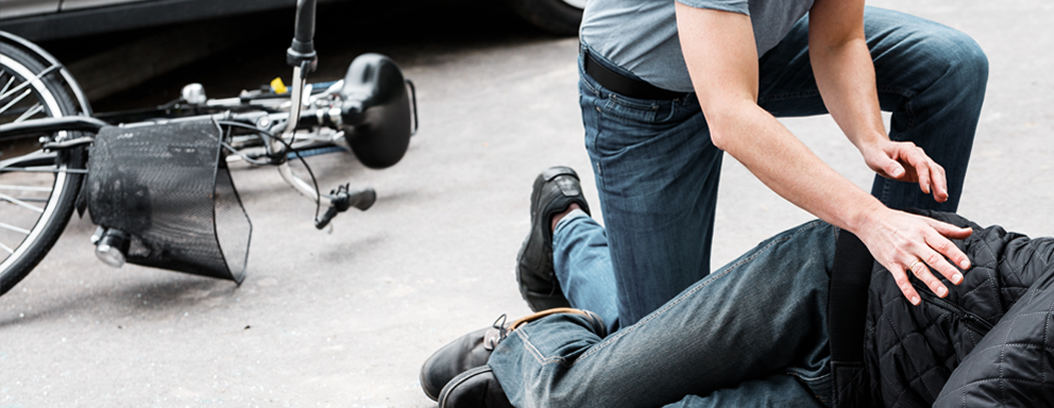Nassau County Premises and Slip & Fall Accident Lawyer
Injuries suffered on another’s property- whether it is at a home, store, office, or commercial building- are often the result of negligent maintenance or even complete disregard for the safety of others. If you or a family member has been injured in a slip-and-fall or other accident away from your home you may have a premises liability claim.
Slip and Fall Accidents
“Slip and fall” is a term used for a personal injury case in which a person slips or trips and falls, and is injured on someone else’s property. These cases usually fall under the broader category of cases known as “premises liability” claims, because slip and fall accidents usually occur on property, or “premises,” owned or maintained by someone else, and the owner or possessor of the property may be held legally responsible.
Dangerous conditions such as torn carpeting, changes in flooring, poor lighting, narrow stairs, or a wet floor can cause someone to slip and hurt him or herself inside a building. Other instances of slip and fall incidents can occur when people trip on broken or cracked public sidewalks, or trip and fall on stairs or escalators. In addition, a slip and fall case might arise when someone slips or trips and falls because of rain, ice, snow or a hidden hazard, such as a pothole in the ground.
Proving Fault in Slip and Fall Cases
There is no precise way to determine when someone else is legally responsible for your injuries if you slip or trip. Each case turns on whether the property owner acted carefully so that slipping or tripping was not likely to happen, and whether you were careless in not seeing or avoiding the condition that caused your fall. Here are some general rules to help you decide whether someone else was at fault for your slip or trip and fall injury.
In most cases, a person injured in a slip and fall on someone else’s property must prove that the cause of the accident was a “dangerous condition”, and that the owner or possessor of the property knew of the dangerous condition. A dangerous condition must present an unreasonable risk to a person on the property, and it must have been a condition that the injured party should not have anticipated under the circumstances. This latter requirement implies that people must be aware of, and avoid, obvious dangers.
In order to establish that a property owner or possessor knew of a dangerous condition, it must be shown that:
- The owner/possessor created the condition;
- The owner/possessor knew the condition existed and negligently failed to correct it; or
- The condition existed for such a length of time that the owner/possessor should have discovered and corrected it prior to the slip and fall incident in question.
For a property owner or possessor to be held liable, it must have been foreseeable that his negligence would create the danger at issue. For instance, if a can of paint falls to the ground and spills into an aisle in a hardware store and, one day later, the store has not noticed or cleaned up the spill, and someone slips in the paint and is injured, one might argue it was foreseeable that the store’s negligence in failing to inspect its aisles and clean up spills would result in someone slipping and injuring himself on a spilled item.
Occasionally, a plaintiff can prove negligence by showing that the property owner violated a relevant statute. For example, building codes often dictate when and where handrails and other similar features must be installed. If you fall on a stairway that lacked appropriate handrails, and the lack of the handrail caused your injuries, you may have a valid claim against the building owner based on his or her building code violation.
Contact a Nassau County Slip and Fall Lawyer
If you have been injured in a slip and fall on someone else’s property and are considering a legal claim against those who were at fault, you should discuss your potential case with an experienced attorney as soon as possible, especially in light of time limits in which injured persons may file a personal injury lawsuit. Contact Evan Gewirtz at the Gewirtz Law Firm by calling or filling out our contact form.




